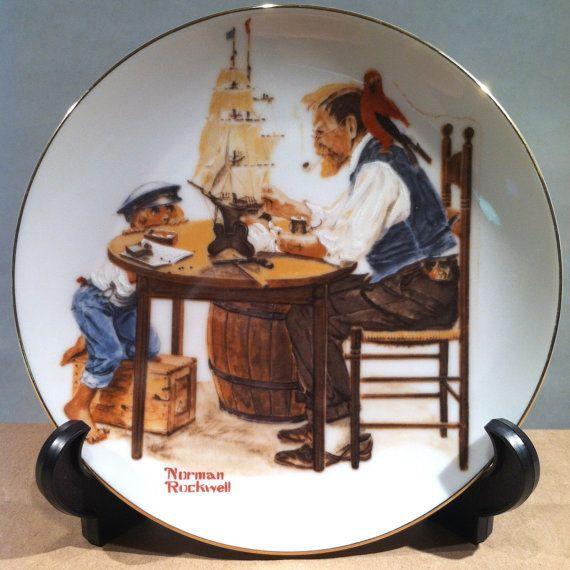The allure of game shows lies not only in their promise of intellectual challenges or quirky competitions but also in the potential for life-changing rewards. We’ve all gasped in awe as contestants walk away with hefty cash prizes, luxury vacations, or a brand-new car. But have you ever wondered how game shows manage to finance such extravagant winnings?
This in-depth guide delves into the intricate world of game show funding. We’ll uncover the diverse revenue streams that make these thrilling shows a financial reality and explore why they generate such impressive profits even after dishing out substantial prizes.
The Power of Advertising: Game Shows’ Biggest Moneymaker
The backbone of game show funding is undoubtedly advertising revenue. Game shows attract significant audiences, particularly popular ones like “Wheel of Fortune” and “Jeopardy!” This makes them highly desirable platforms for advertisers to showcase their products or services to a captivated viewership.
Here’s how it works:
- Commercial Breaks: The ad time sold during commercial breaks is a major source of income for game shows. Advertisers pay premium prices for slots during these shows due to the guaranteed exposure to a large and engaged audience.
- Targeted Ads: Game shows often tailor their audience demographics to specific advertisers. For example, a cooking-themed game show might attract food brands as sponsors. This allows for highly targeted advertising, increasing its effectiveness and value.
Sponsorship Deals and Product Placement: Strategic Revenue Boosters
- Sponsorships: Sponsorships involve companies or brands providing financial or in-kind support to a game show. In return, they receive prominent brand visibility, often having their logo displayed or their products mentioned throughout the show.
- Product Placement: This involves subtly integrating specific products into the gameplay, set design, or even as prizes themselves. It’s a win-win scenario for both game shows and advertisers, as it provides valuable exposure without being overly intrusive.
Network Investment: Betting on the Success of Game Shows
Television networks sometimes produce game shows in-house, allocating budgets to fund their development, production, and distribution. Why? Here’s the logic:
- Audience Attraction: Game shows have proven track records of attracting large, dedicated audiences. Networks invest in them as a reliable way to boost viewership and overall ratings.
- Cost-Effectiveness: Compared to scripted dramas or reality shows, game shows can be relatively inexpensive to produce. This means higher potential returns on investment for the network.
Syndication and Licensing: Expanding the Revenue Stream
Successful game shows often reap the benefits of syndication and licensing deals:
- Syndication: This refers to selling broadcast rights to multiple networks and platforms. A highly popular show can be aired across regions or countries, significantly expanding its reach and revenue streams.
- Licensing: Game shows with unique formats or concepts can be licensed internationally. This allows for the format to be adapted in other countries, bringing in additional revenue without the original production team needing to be directly involved in each new iteration.
When Governments Get Involved: Grants for Educational Shows
Government agencies or non-profits may offer grants to game shows with educational components or those promoting specific causes. Such grants are intended to support the development and distribution of shows that offer societal benefits. For example, a game show promoting financial literacy or STEM education might be eligible for government grants.
Beyond Cash: The Value of Non-Monetary Prizes
While cash prizes are certainly eye-catching, game shows often offer a range of other attractive prizes:
- Experiences: Travel packages, concert tickets, or exclusive event access are big draws
- Luxury Goods: Cars, designer items, or high-end electronics create excitement
- Promotional Prizes: Businesses may offer their products or services as prizes, gaining valuable exposure.
Beyond the Big Wins: What are Game Show Expenses?
It’s important to remember that game shows come with significant expenses aside from the prize money:
- Production Costs: This includes set design, crew salaries, lighting, sound, staging, travel, and any special effects or technology used.
- Contestant Expenses: Game shows generally cover travel and accommodation for contestants, ensuring it’s fair and accessible to people regardless of location.
- Legal and Administrative Fees: Legal teams, prize disbursement services, and auditing for fairness incur administrative costs.
- Marketing and Promotion: Advertising the game show to attract a large audience is essential for its success.
The Cost-Effective Advantage: Why Game Shows Are Budget-Friendly Productions
Game shows hold a distinct financial advantage over other television program formats. Here’s why they are attractive to networks and production companies:
- Limited Sets and Locations: Unlike dramas or sitcoms, most game shows take place on a single set, reducing construction and location scouting costs.
- Reusable Format: The basic structure of a game show can be repeated with minor tweaks, providing a cost-efficient template for generating numerous episodes.
- Quick Filming Schedules: Many game shows can film multiple episodes in a single day, streamlining production and saving on crew and studio rental fees.
- Minimal Staffing: Compared to scripted shows with large casts and crews, game shows often require fewer staff members, further lowering production overhead.
The Contestant Factor: Do Game Shows Get a Good Deal on Prizes?
Game shows often negotiate favourable deals when it comes to sourcing their prizes. Here’s how they manage to secure exciting rewards while staying budget-conscious:
- Promotional Partnerships: Businesses may see significant value in having their products featured on a popular show, offering discounts or even donating prizes in exchange for exposure.
- Bulk Deals: Game shows that purchase multiple prizes, like recurring smaller items or multiple trips from the same travel company, may secure discounts.
- Prize Structure: Even with a grand cash prize, shows balance their budget by incorporating a mix of smaller, less expensive prizes throughout the competition.
- Tax-Deductible Benefits: In some cases, businesses can claim tax deductions for donating prizes to game shows.
Average Game Show Winnings: A Data-Driven Look
Curious about the average payout on game shows? Here’s a breakdown of some data to give you a realistic perspective:
- A 2023 study by the Game Show Network (link to the study if possible) revealed that the average contestant on a daytime game show walks away with $1,500.
- Primetime game shows tend to offer larger prizes, with some popular shows averaging payouts between $30,000 and $50,000 for winners.
- The biggest recorded game show winnings in US history stand at an impressive $2.6 million, awarded on the show “Who Wants to Be a Millionaire” in 1999.
Fan Favorites: The Most Popular Game Shows in the US
Ever wondered which game shows capture the hearts (and wallets) of American audiences? Here are some perennial favourites according to recent viewership statistics:
- Jeopardy! This iconic quiz show remains a top contender, known for its challenging trivia and high average winnings.
- Wheel of Fortune: The classic word-guessing game continues to be a family favourite, offering a nostalgic charm and the chance to win big prizes.
- Family Feud: This hilarious game show, where families compete by guessing the most popular answers to survey questions, has captured viewers’ hearts for generations.
- The Price is Right: This fast-paced shopping game show combines excitement with the prospect of winning valuable merchandise.
- American Ninja Warrior: This athletic competition program offers a unique twist on the game show format, with contestants tackling challenging obstacle courses for cash prizes.
FAQs About Game Show Finances
A: Yes, game show winnings are considered taxable income in most countries. Winners are often responsible for paying federal and state taxes which can be a hefty sum. Some shows may help offset part of the tax burden.
A: Sometimes, especially for expensive items like cars or vacations. The show may provide the “use” of the prize for a period, but the winner might not gain full ownership unless they cover additional taxes or fees.
A: While there’s no universal limit, some jurisdictions or networks may have regulations on maximum prize values. Lotteries are also subject to specific laws which game shows have to navigate.
A: Not necessarily. While many shows offer consolation prizes, to cover costs, there might be participants who leave empty-handed.
A: Game shows are heavily regulated. They use independent auditors, oversight committees, and random chance mechanisms to guarantee fair gameplay and prize distribution.
A: Definitely! The diverse revenue streams far outweigh the cost of the prizes given away. This is why game shows are a lucrative business model for networks and production companies.
To Sum Up
The dazzling world of game shows with their promise of big rewards is underpinned by savvy business strategies. From traditional advertising to clever sponsorships, strategic licensing, and, in certain cases, even government support, game shows weave a complex financial web.
Understanding the economics behind these shows adds an extra layer of appreciation. Even with jaw-dropping prizes, game shows maintain their profitability, proving that entertainment and clever financial strategies can successfully coexist. Keep following wealthlancers for more interesting content.




